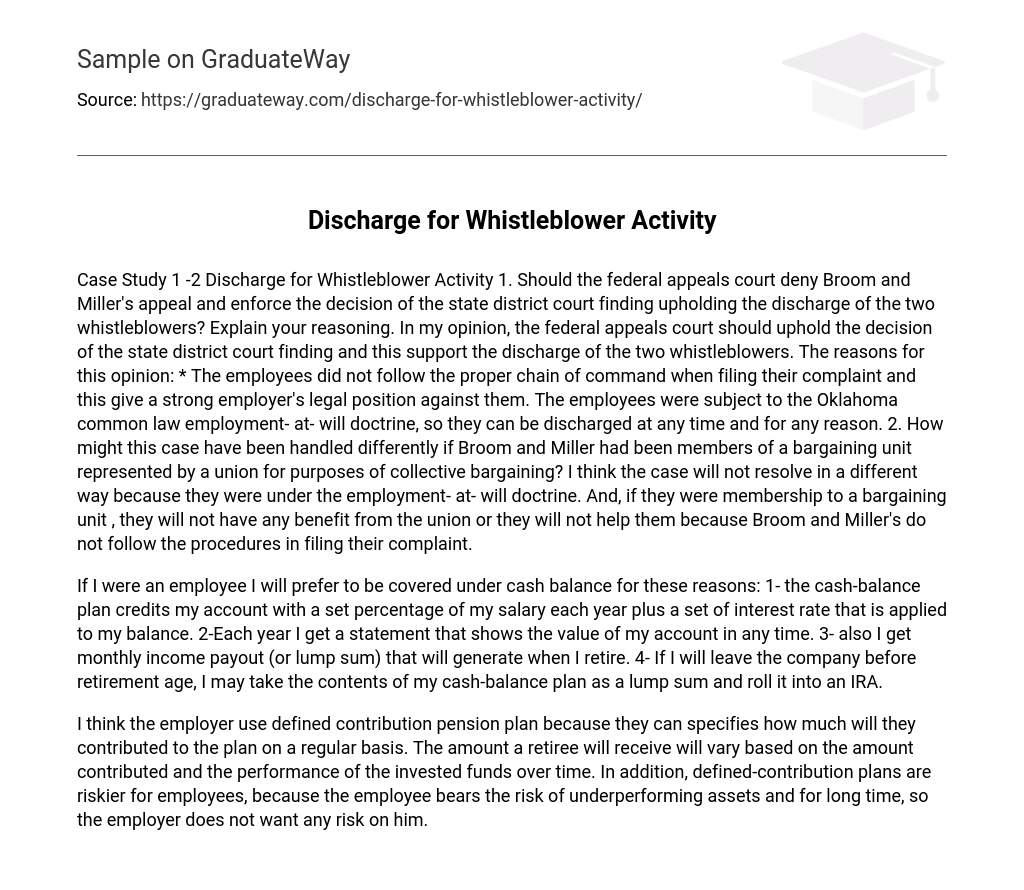Case Study 1 -2 Discharge for Whistleblower Activity 1. Should the federal appeals court deny Broom and Miller’s appeal and enforce the decision of the state district court finding upholding the discharge of the two whistleblowers? Explain your reasoning. In my opinion, the federal appeals court should uphold the decision of the state district court finding and this support the discharge of the two whistleblowers. The reasons for this opinion: * The employees did not follow the proper chain of command when filing their complaint and this give a strong employer’s legal position against them. The employees were subject to the Oklahoma common law employment- at- will doctrine, so they can be discharged at any time and for any reason. 2. How might this case have been handled differently if Broom and Miller had been members of a bargaining unit represented by a union for purposes of collective bargaining? I think the case will not resolve in a different way because they were under the employment- at- will doctrine. And, if they were membership to a bargaining unit , they will not have any benefit from the union or they will not help them because Broom and Miller’s do not follow the procedures in filing their complaint.
If I were an employee I will prefer to be covered under cash balance for these reasons: 1- the cash-balance plan credits my account with a set percentage of my salary each year plus a set of interest rate that is applied to my balance. 2-Each year I get a statement that shows the value of my account in any time. 3- also I get monthly income payout (or lump sum) that will generate when I retire. 4- If I will leave the company before retirement age, I may take the contents of my cash-balance plan as a lump sum and roll it into an IRA.
I think the employer use defined contribution pension plan because they can specifies how much will they contributed to the plan on a regular basis. The amount a retiree will receive will vary based on the amount contributed and the performance of the invested funds over time. In addition, defined-contribution plans are riskier for employees, because the employee bears the risk of underperforming assets and for long time, so the employer does not want any risk on him.





